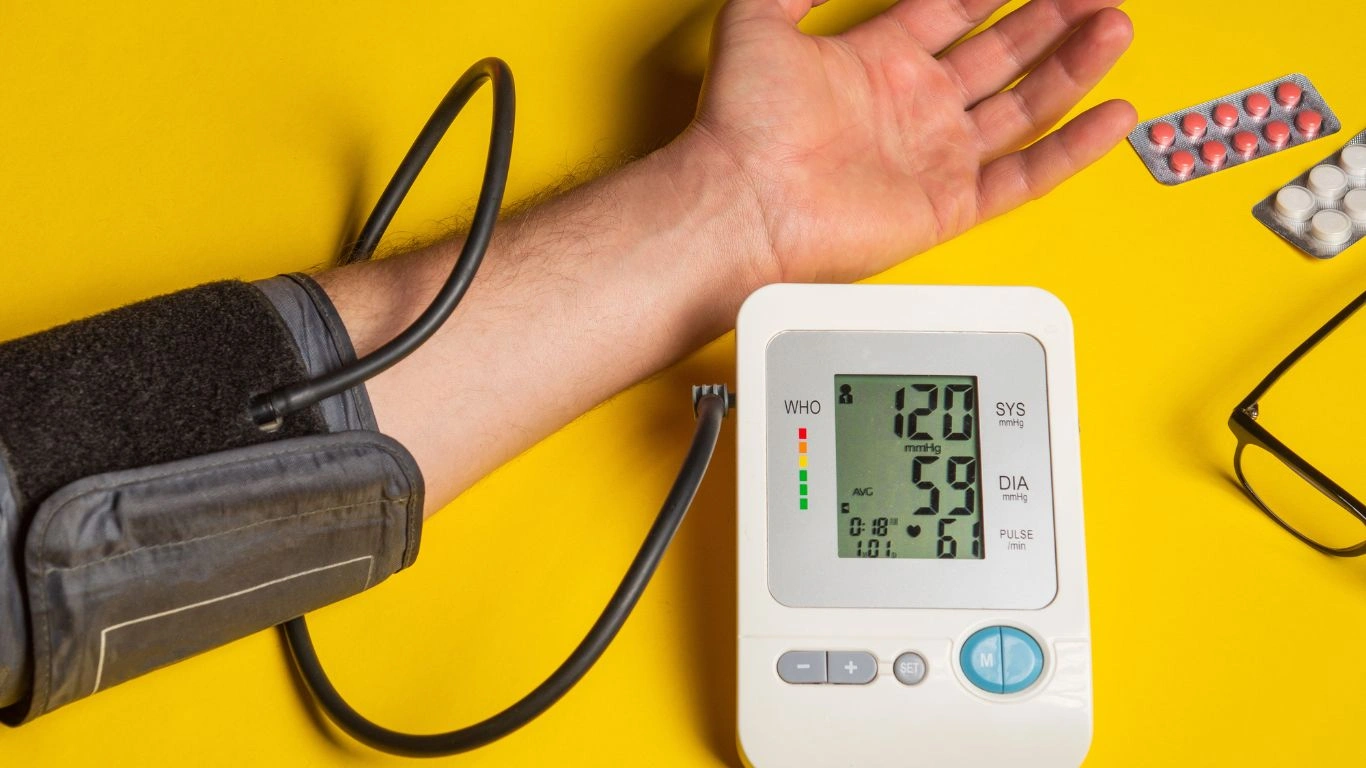Understanding Hypertension: Key Risk Factors You Need to Know
Hypertension, or high blood pressure, is one of the most common yet silent health issues affecting millions of people worldwide. As someone who’s spent years working with patients to manage and prevent hypertension, I can tell you that it’s not just about medication – it’s about understanding what triggers high blood pressure in the first place. Hypertension risk factors are critical to understand, as they can help you take proactive steps in lowering your chances of developing this condition. Whether it’s your diet, lifestyle, or even genetics, knowing the risks gives you the power to make informed decisions. So, let’s dive into some of the most important hypertension risk factors that you should be aware of.
Understanding Hypertension Risk Factors
Hypertension is a multifactorial condition, which means that there’s no single cause but rather a combination of factors that can contribute to the development of high blood pressure. By identifying these risk factors early on, you can take charge of your health before hypertension becomes a more serious issue.
Age: The Inevitable Factor

As much as we all like to think we’re invincible, the reality is that age plays a significant role in the likelihood of developing hypertension. In fact, the older you get, the more likely you are to develop high blood pressure. As we age, our arteries naturally become stiffer, which can cause an increase in blood pressure. This is why hypertension is more common in older adults, and it’s essential to have your blood pressure checked regularly as you age. But just because it’s common doesn’t mean it’s something you can’t manage! Regular exercise, a healthy diet, and lifestyle changes can help keep your blood pressure in check, even as you age.
Family History: Your Genetics Matter

Another critical hypertension risk factor that can’t be overlooked is your family history. If you have parents or close relatives with high blood pressure, there’s a greater chance that you may develop it too. Although genetics are not something we can control, understanding your family history helps you stay proactive. I’ve seen many patients whose high blood pressure was influenced by genetics, which means they were more likely to experience it at an earlier age or with greater severity. In these cases, it’s even more important to keep up with regular checkups, and lifestyle changes can make a big difference in managing your blood pressure.
Unhealthy Diet: What You Eat Affects Your Pressure
Let’s be real – who doesn’t love comfort food? But, when it comes to hypertension, what you eat can have a significant impact on your blood pressure. A diet high in sodium (salt), processed foods, and unhealthy fats can contribute to elevated blood pressure. This is why the DASH diet (Dietary Approaches to Stop Hypertension) is often recommended for people looking to reduce their blood pressure. It focuses on eating plenty of fruits, vegetables, lean proteins, and whole grains. Additionally, it’s important to be mindful of your salt intake – while some salt is necessary for body functions, excessive amounts can cause your body to retain fluid, raising your blood pressure.
Physical Inactivity: The Hidden Danger

We all know how easy it is to fall into the trap of a sedentary lifestyle. After all, after a long day at work, sometimes the couch and a good show are all you want. But did you know that a lack of physical activity is one of the key risk factors for developing hypertension? When you’re inactive, your heart has to work harder to pump blood, and over time, this increases the pressure on your arteries. Fortunately, adding regular physical activity to your routine can have a significant positive impact on your blood pressure. Something as simple as walking, swimming, or cycling can work wonders in helping lower your blood pressure and keeping it in a healthy range.
Excessive Alcohol Consumption
While an occasional drink might be fine for most people, excessive alcohol consumption is a risk factor for hypertension that many people overlook. Drinking too much alcohol can raise your blood pressure by damaging the heart and blood vessels over time. For women, moderate drinking is defined as one drink per day, while men should limit themselves to two. It’s also important to remember that drinking alcohol in excess can contribute to weight gain, which further increases the risk of hypertension.
Smoking: A Double Whammy
If you’re a smoker, it’s time to consider quitting for your heart’s sake. Smoking is one of the most dangerous lifestyle factors when it comes to hypertension. When you smoke, the nicotine causes a temporary increase in your blood pressure by narrowing your blood vessels. In addition to raising blood pressure, smoking also accelerates the development of atherosclerosis, or the hardening of the arteries, which can further contribute to hypertension. Quitting smoking is one of the best things you can do to lower your blood pressure and improve your overall cardiovascular health.
Chronic Stress: The Silent Assailant
We all experience stress, but chronic stress can have a major impact on your blood pressure. When you’re stressed, your body releases stress hormones like cortisol, which can temporarily raise your blood pressure. Over time, chronic stress can contribute to long-term hypertension. Managing stress through techniques like deep breathing, yoga, or meditation can be incredibly effective in keeping your blood pressure in check. Personally, I’ve seen how powerful stress reduction techniques can be in helping patients improve their blood pressure levels. It’s not just about relaxation; it’s about protecting your heart and overall health!
Other Potential Hypertension Risk Factors
While age, genetics, and lifestyle choices are some of the most common hypertension risk factors, there are other considerations to keep in mind as well. For example, certain medical conditions like diabetes, sleep apnea, and kidney disease can also increase your risk of developing high blood pressure. Certain medications, like non-steroidal anti-inflammatory drugs (NSAIDs) and birth control pills, can also affect your blood pressure. That’s why it’s essential to keep open communication with your healthcare provider and monitor your health regularly.
The Role of Obesity and Weight Management in Hypertension
When it comes to hypertension risk factors, we can’t ignore the connection between weight and blood pressure. For many people, maintaining a healthy weight is one of the most significant steps toward managing and preventing high blood pressure. As a healthcare professional, I’ve seen firsthand how weight loss can have a transformative effect on a patient’s blood pressure. When you carry excess weight, especially around the waistline, it puts added strain on your heart, causing your blood pressure to rise. Losing even a small amount of weight can lead to noticeable improvements in blood pressure.

It’s not just about looks or vanity; it’s about your heart health! Keeping your weight in a healthy range can make a big difference. I always tell my patients that a combination of regular physical activity and a balanced diet is the key to weight management. Even if you don’t drop massive amounts of weight, every pound lost can lower your blood pressure. This is why I recommend adopting a sustainable weight loss plan rather than looking for quick fixes. Weight management isn’t a one-time thing – it’s a lifestyle change that pays long-term health dividends.
Sleep Apnea: The Overlooked Risk Factor
If you’re someone who’s been struggling with sleep apnea, or if you know someone who snores loudly or has trouble breathing during sleep, you’ll want to pay close attention to this risk factor. Sleep apnea has been strongly linked to hypertension. The reason? When you stop breathing during sleep, even for a few seconds at a time, your body goes into a stress response. Your heart rate increases, and your blood pressure spikes. This repeated cycle of oxygen deprivation can lead to persistent high blood pressure.
Recognizing the Signs of Sleep Apnea
Many people with sleep apnea aren’t even aware they have it, which is why it’s important to be aware of the signs. Some of the common symptoms include loud snoring, choking or gasping during sleep, feeling excessively tired during the day, and having difficulty focusing. If any of these sound familiar, I strongly recommend discussing them with your healthcare provider. Identifying and treating sleep apnea can help prevent hypertension from becoming a serious issue.

Fortunately, there are treatments available for sleep apnea, such as CPAP machines, lifestyle changes, and even surgery in severe cases. Once treated, many patients notice improvements not only in their quality of sleep but also in their blood pressure levels. It’s a win-win!
Chronic Kidney Disease and Hypertension
If you’re dealing with kidney disease, you might not realize just how closely it’s linked to hypertension. In fact, chronic kidney disease (CKD) and high blood pressure often go hand in hand. The kidneys are responsible for regulating blood pressure by balancing sodium and fluid levels. When the kidneys are damaged, they can’t do their job properly, leading to higher blood pressure. On the flip side, high blood pressure can also damage the kidneys over time, creating a vicious cycle that’s difficult to break.
How Kidney Disease Affects Your Blood Pressure
As someone who works closely with patients dealing with kidney disease, I can tell you that managing both hypertension and CKD requires a team approach. It’s essential to keep your blood pressure under control to prevent further kidney damage. That’s why regular checkups and blood tests are so important if you have kidney disease. Sometimes, medications like ACE inhibitors or angiotensin receptor blockers (ARBs) are prescribed not only to lower blood pressure but also to protect the kidneys. This is one of those instances where managing one condition can significantly improve the other.

Working closely with your healthcare team to monitor kidney function and blood pressure is crucial. By taking steps to protect both your heart and kidneys, you’ll significantly improve your overall health. And, don’t forget – lifestyle changes like staying active and eating well can also go a long way in managing both conditions.
The Impact of Gender and Hormonal Changes
Did you know that gender can also play a role in hypertension risk? While both men and women are susceptible to high blood pressure, the age at which it develops and the way it affects the body can differ. For example, men are more likely to develop hypertension earlier in life, while women often experience a rise in blood pressure after menopause. This is believed to be due to hormonal changes, particularly the decrease in estrogen levels, which can have a protective effect on the cardiovascular system.
Hypertension in Women
Women who go through menopause have an increased risk of developing hypertension, which is something I often see in my practice. After menopause, the drop in estrogen can cause blood vessels to stiffen, leading to higher blood pressure. In addition, women tend to be more likely to develop hypertension if they have a history of preeclampsia during pregnancy or if they are overweight. I always encourage women to monitor their blood pressure regularly, especially as they approach or go through menopause.
Hypertension in Men
On the other hand, men tend to have a higher risk of hypertension earlier in life. They’re also more likely to have higher blood pressure as they age, particularly if they don’t make lifestyle changes. Men often have a higher likelihood of high blood pressure related to factors like alcohol consumption, poor diet, and a lack of physical activity. While these factors can affect anyone, they tend to be more prominent in men. This is why I always stress the importance of adopting heart-healthy habits at a younger age to prevent hypertension from taking hold.
Medications and Hypertension Risk Factors
When lifestyle changes aren’t enough to keep your blood pressure under control, medications often become a key part of managing hypertension. But there’s a catch: the type of medication you need depends on several factors, including your overall health, the severity of your hypertension, and any other underlying conditions you may have. As a healthcare provider, I’ve seen the difference that the right medication can make, but it’s important to remember that medications are not a one-size-fits-all solution. They’re just one tool in the toolbox of managing high blood pressure.
Common Medications for Hypertension
There are several classes of medications used to treat hypertension, each working in different ways to lower blood pressure. Some of the most common types include:
- ACE Inhibitors: These help relax blood vessels by blocking the formation of a hormone that narrows blood vessels, which lowers blood pressure.
- Beta-Blockers: These medications reduce the heart rate, helping the heart pump more efficiently and lowering blood pressure.
- Diuretics: Often referred to as “water pills,” these medications help the body eliminate excess sodium and water, lowering blood volume and, in turn, blood pressure.
- Calcium Channel Blockers: These relax and widen the blood vessels by preventing calcium from entering the smooth muscle cells of the heart and blood vessels.
I’ve seen patients experience huge improvements in their blood pressure with the help of these medications, but they must be prescribed carefully, with attention to potential side effects. It’s crucial to work closely with your healthcare provider to find the right treatment plan for your unique situation.
The Importance of Regular Monitoring
Another key to managing hypertension risk factors is regular monitoring of your blood pressure. It’s one thing to know that you have high blood pressure, but it’s another to keep track of how it fluctuates over time. Whether you’re dealing with a diagnosed case of hypertension or just trying to prevent it, knowing your numbers is essential.
At-Home Monitoring: Taking Charge of Your Health
One of the easiest ways to keep an eye on your blood pressure is by using a home blood pressure monitor. Many patients tell me that they feel more in control of their health when they can check their own blood pressure. It also helps identify any spikes or drops in blood pressure, allowing for timely adjustments to medication or lifestyle changes. If you’re considering getting a blood pressure cuff for home use, I recommend getting one that’s validated for accuracy. A little investment in the right equipment can go a long way!
Regular Checkups with Your Healthcare Provider
Even if you monitor your blood pressure at home, regular checkups with your healthcare provider are still essential. These visits allow your doctor to assess your overall health, adjust any medications if necessary, and ensure that your blood pressure is well-managed. I always remind my patients that even if they’re feeling fine, it’s still important to keep up with those annual appointments. Hypertension can often go unnoticed because symptoms don’t appear until it’s quite advanced, and by that time, the damage to the cardiovascular system can be significant.

Early detection is key to preventing long-term damage, so don’t skip those checkups! Blood pressure should be checked at least once a year, especially for those with risk factors like obesity, family history, or a sedentary lifestyle.
Stress Management: Finding Balance in Your Life
If there’s one thing I emphasize over and over again, it’s that managing stress is one of the most powerful tools you can use to keep your blood pressure in check. In our fast-paced, high-pressure world, it’s easy to let stress spiral out of control. But chronic stress can wreak havoc on your cardiovascular system, contributing to increased blood pressure.
Practical Tips for Managing Stress
While it might sound easier said than done, managing stress is achievable with the right tools and mindset. Here are a few techniques that have helped my patients:
- Mindfulness and Meditation: Taking just 5-10 minutes a day to practice mindfulness or meditation can significantly reduce stress. Apps like Headspace or Calm are great tools to guide you through the process.
- Exercise: Physical activity is not only great for your heart but also an effective way to combat stress. Whether it’s a brisk walk, a yoga session, or hitting the gym, exercise can help release pent-up tension.
- Deep Breathing: Slow, deep breathing helps activate your parasympathetic nervous system, which counters the stress response. Techniques like diaphragmatic breathing can make a big difference in calming your body.
It’s important to find what works best for you. Stress management isn’t just a one-time fix – it’s a daily practice. I’ve seen how consistently managing stress can lower blood pressure over time, and it’s one of the easiest changes you can make to protect your heart.
Understanding the Bigger Picture: Lifestyle Changes Matter
When it comes to managing hypertension, there’s no magic pill. It’s about making the right choices every day. From maintaining a healthy diet to staying active and reducing stress, every aspect of your lifestyle plays a role in managing blood pressure. It’s a holistic approach that requires commitment, but trust me – the rewards are worth it.
Small Changes, Big Results
One of the most important things I tell my patients is that making small changes can lead to big results. You don’t have to make drastic, overwhelming changes all at once. Start with manageable steps: cut back on sodium, increase your daily activity, and find ways to unwind at the end of the day. As these small changes become habits, they’ll compound and have a significant impact on your blood pressure over time.
The Power of Support
Finally, don’t underestimate the power of a support system. Whether it’s family, friends, or even an online community, having people around you who understand your goals can make a world of difference. I’ve seen patients achieve amazing results when they have the support of others who encourage them along the way. Blood pressure management is a journey, and having people by your side can help you stay motivated and on track.
Disclaimer
The information provided in this article is for general informational purposes only and should not be considered as medical advice. Always consult with a healthcare professional for proper diagnosis and treatment. The author does not accept any responsibility for any medical conditions that may arise from following the recommendations in this article. The content is intended to support, not replace, the relationship that exists between a patient and their healthcare provider.
For more health-related information and resources, feel free to visit trusted sources like WebMD.

Dr. Gwenna Aazee is a board-certified Internal Medicine Physician with a special focus on hypertension management, chronic disease prevention, and patient education. With years of experience in both clinical practice and medical writing, she’s passionate about turning evidence-based medicine into accessible, actionable advice. Through her work at Healthusias.com, Dr. Aazee empowers readers to take charge of their health with confidence and clarity. Off the clock, she enjoys deep dives into nutrition research, long walks with her rescue pup, and simplifying medical jargon one article at a time.







